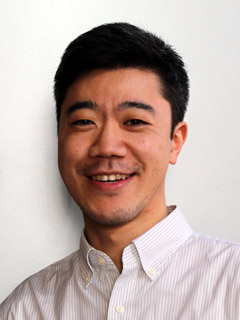HOW CAN WE HELP YOU? Call 1-800-TRY-CHOP
In This Section

Dr. Choi's research focuses on the role of RNA-binding proteins in the regulation of alternative splicing and how mutations in these factors contribute to cancer. He uses a combination of genetically-engineered models and high-throughput approaches to better understand how alternative splicing influences cellular function and to identify potential opportunities for therapeutic intervention.
Bio
Alternative splicing is an essential mode of gene regulation that greatly diversifies the coding potential of the transcriptome. However, this process is often dysregulated in human cancer. For example, mutations in splicing regulatory sequences can affect specific RNA transcripts and result in the expression of oncogenic protein products. In addition, recent large-scale genomic surveys of multiple cancer types have identified somatic alterations in splicing factors and other RNA-binding proteins, demonstrating that more global changes in RNA processing can also play a significant role in tumorigenesis. Despite the ability to comprehensively detect the landscape of alternatively spliced transcripts through next-generation sequencing, it has remained difficult to predict much of the functional impact of aberrant splicing.
Dr. Choi's group aims to decipher how patterns of alternative splicing control cellular processes and, when perturbed, can lead to pathogenic states such as cancer. He is particularly interested in characterizing RNA-binding proteins known to be mutated in cancer and their functional role in alternative splicing and other steps in RNA processing.
Dr. Choi and his team are also interested in understanding how the expression of specific isoforms may regulate fundamental pathways involved in cell division and cell death. To elucidate these questions, they make extensive use of genome editing to engineer faithful models of cancer-associated mutations, and custom high-throughput screening approaches to more rapidly characterize the function of alternatively spliced isoforms. Dr. Choi hopes to translate the wealth of genomic data and ever-evolving experimental tools into meaningful biological insights and more effective treatments for cancer.
Dr. Choi's notable career achievements include:
- NIH Pathway to Independence Award
- Ruth L. Kirschstein NRSA Individual Postdoctoral Fellowship Award
- International Association for the Study of Lung Cancer (IASLC) Fellowship Award
Education and Training
BS, Cornell University (Biology/Biochemistry), 2002
PhD, Stanford University (Immunology), 2012
Fellowship, Stanford University (Cancer Biology), 2012
Fellowship, Dana-Farber Cancer Institute (Cancer Biology), 2018
Titles and Academic Titles
Scientist
Assistant Professor of Pathology and Laboratory Medicine
Professional Memberships
American Association for Cancer Research, 2007-
Professional Awards
International Association for the Study of Lung Cancer Fellowship Award, 2013-2015
Ruth L. Kirschstein NRSA Individual Postdoctoral Fellowship Award, 2015-2016
Pathway to Independence Award, 2016-2018